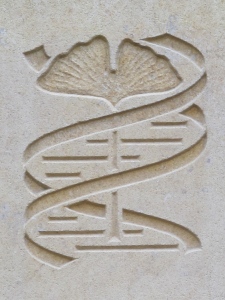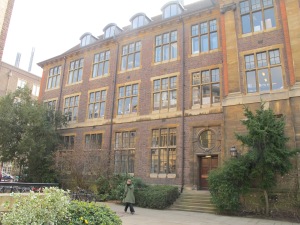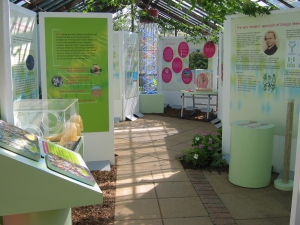 In 1991, The Botany School at Cambridge University changed its name to the Department of Plant Sciences, nevertheless the terms – plant science and botany – are interchangeable. “I think that plant science is botany and botany is plant science,” says Regius Professor of Botany, Professor Sir David Baulcombe. “In the 21st century, plant science has a higher profile than it has ever had. There is an increasing awareness that plant science addresses issues that are of practical significance at a number of different levels. Plant science is relevant to our understanding of conservation, biodiversity. It’s got obvious connections to climate change, because the plants in the biosphere have a big effect on the CO2 flux within the planet and obviously plant science has a relationship to agriculture, food security and sustainable agriculture and so on.”
In 1991, The Botany School at Cambridge University changed its name to the Department of Plant Sciences, nevertheless the terms – plant science and botany – are interchangeable. “I think that plant science is botany and botany is plant science,” says Regius Professor of Botany, Professor Sir David Baulcombe. “In the 21st century, plant science has a higher profile than it has ever had. There is an increasing awareness that plant science addresses issues that are of practical significance at a number of different levels. Plant science is relevant to our understanding of conservation, biodiversity. It’s got obvious connections to climate change, because the plants in the biosphere have a big effect on the CO2 flux within the planet and obviously plant science has a relationship to agriculture, food security and sustainable agriculture and so on.”
(Left) An exhibition display on DNA and plant science in the conservatory at the Botanic Garden in April 2005.
The re-branding of ‘plant science’ reflects the seismic shift in the approach to the study of plants in the late 20th century. In the past ‘whole botany’, was the study of the entire plant which looked at understanding of its taxonomy and plant physiology. Since the 1970s, the study of plants has shifted to a microbiological approach. Modern research often focuses on understanding elements of the DNA or RNA sequences of plants, rather than on studying the whole plant. Professor Sir David Baulcombe, Regius Professor of Botany at Cambridge has demonstrated that research on plant genetics and epigenetics can have implications to the DNA of humans and animals as well.

The Cambridge University Botanic Garden is a sub-department of the Department of Plant Sciences in Cambridge. Historically, the relationship between the two institutions is interdependent. As the focus of plant science evolved, the Botanic Garden’s traditional role shifted. Since the University Review in 1995, connections between the Department and the Botanic Garden have converged once again and new connections have developed. John Parker (Director 1996 – 2010) was also Professor of Cytogenetics at Cambridge. The current Director, Beverley Glover, is also Professor of Plant Systematics and Evolution. Professor Glover heads a research group focusing on the animal pollinators of flowers.
Find out more about these ideas: Themes, Biodiversity, Conservation, Ecology, Ecological Restoration, Plant Sciences and Sustainability.

